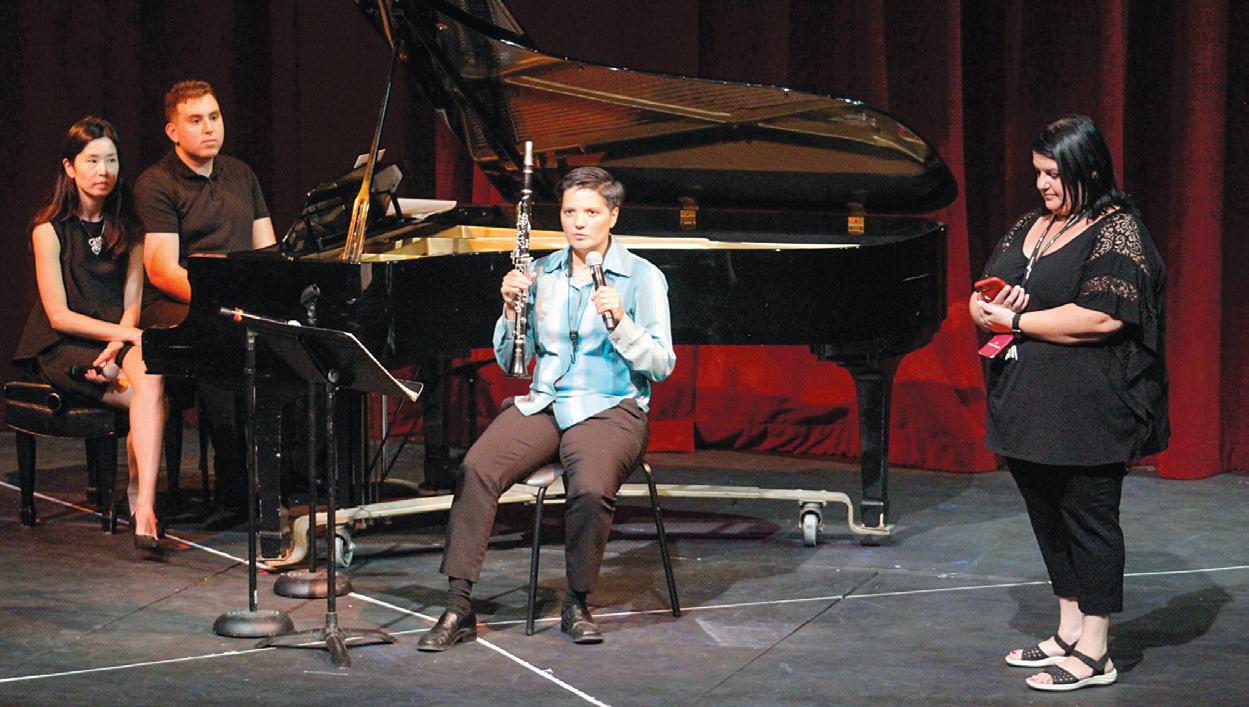
2 minute read
Chicano studies hosts second speaker series event Dancers performed as department continues celebrating Hispanic Heritage Month
BY PAMELA KALIDASAN Features Editor
In the second of the Chicano and Latino/x/a Heritage Month Speaker series, taking place last Wednesday night at the Eugene and Dow Theater, began with Chicano Studies Professor Angelita Rovero welcoming the attendees and introducing the Mexicanen Aztlan performers.
Advertisement
The performers danced to the beat of the drums, and at intervals blew the conch while striking and kicking their legs as their wide anklets rang on stage, imitating the beauty and grace of the four elements and cardinal directions.
“Something that I also go over in my classes is that it's important to connect to Indigenous myths, that we are Indigenous, that we are Chicanos, that we are Mexicans, and that’s why it’s very important to have the representation of where we come from,” Rovero said. “This is our roots.”
After Rovero, Dean of Student Engagement Juan Carlos Astorga spoke of the partnership he had with Rovero and her students, Machistas, in organizing these events. “It’s really been an amazing partnership that we’ve had to ever dream of,” Astorga said. “For this month-long celebration, what do we do to acknowledge the heritage, the legacy, the importance of our cultura, our activism, our expressions, but really, the most important thing is just to see her dedicate her passion and bring it to our campus. I’m really grateful.” Rovero then introduced chicana artist and art teacher Emilia Cruz to the stage to talk about her experiences being an artist and how it was like to grow up.
Cruz got personal in explaining what it meant to pursue her dream while battling with issues of mental health, bad relationships, colorism and the difficult journey of fully accepting her culture.
“Simi Valley is a very conservative place, especially when I was in elementary school, I didn’t have a lot of friends that were elsewhere or even Latinos,” Cruz said. “Then when I would travel to spend time with my family in Tijuana, there was this kind of otherness I felt and I don’t think it was until I entered high school where I found a group of friends that I could finally talk to them about this and feel pride again.”
During the Q&A, Rovero asked her about her piece “Finding a Connection” that Rovero had in possession with her and kept that in her classroom for students to see.
Cruz said that piece is about her going outside and talking to the moon to comfort herself.
“I would get into bad episodes and the only thing that could ease me was going outside,” Cruz said. “The moon would be out and I could just talk to her, and it would feel like something or someone was listening.”
Later on Cruz added that she drew little ghostly hands coming from the Earth to find her connection back to her ancestors and her roots.
“I felt like people that are there, holding on to my roots and helping me and letting me know that I’m here to guide you and help you with your growth,” Cruz said.
After Cruz, Rovero introduced writer, actor and producer Richard Montaya to talk about his new project pitch, “Cholo Zombies,” and about his works that open up conversations about gentrification and excluding the poor and the other from the equation in our society. “It’s brutal,” said Montaya during the Q&A session. “Los Angeles is just getting so expensive it’s driving entire families out onto the streets. So I’m gonna try putting my two cents out there and look at it through some amount of humor, lyricism and also ceremony and ritual.” pkalidasan.roundupnews@gmail.com







